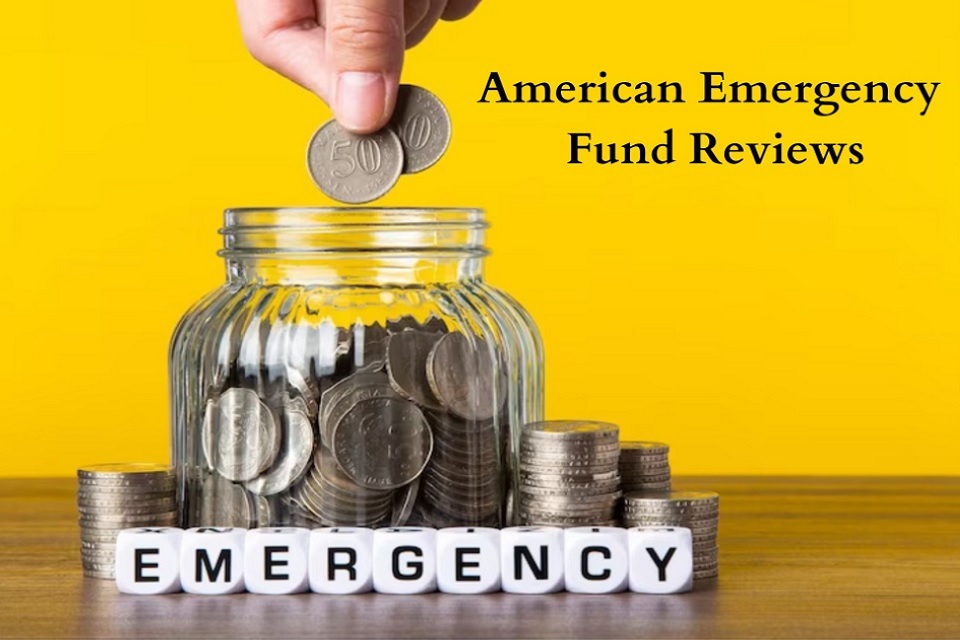In today’s world, emergency funds are a crucial safety net for unexpected financial challenges. However, scammers have become adept at exploiting people’s vulnerabilities by creating counterfeit emergency fund schemes. One such fraudulent operation is the American Emergency Fund. In this detailed American Emergency Fund reviews, we will unveil is American Emergency Fund legit and gain insights into recognizing and avoiding scams involving emergency fund associations.
Table of Contents
Understanding The American Emergency Fund
The American Emergency Fund website does not engage in the lending business. Instead, it acts as a middleman connecting individuals with lenders offering $1000 loans. They are clear about not representing any specific lender and primarily gather applicant information to pass on to partner lenders.
Red Flags Associated With The American Emergency Fund
Request for Extensive Personal Information: Be cautious if a fund requires sensitive personal data like your name, address, Social Security Number, or credit-card information, similar to what the American Emergency Fund, a fraudulent entity, demands. Legitimate emergency funds often don’t request such confidential details upfront.
Unclear Funding Source: A red flag to watch out for is the absence of a clear funding source, which is also a characteristic of the American Emergency Fund scam. Genuine emergency funds should be transparent about their financial backers. If this information is not readily available, it’s a cause for concern.
Recent Website Creation Date: Check the website’s registration date, particularly if it’s a recently created domain like the American Emergency Fund’s site, which was registered in January 2023. This raises suspicions about its legitimacy, as seen in similar scams.
Detecting Phony Emergency Relief Programs
In an era where emergencies can strike unexpectedly, it’s crucial to discern genuine emergency funds from fraudulent ones. Scammers often exploit vulnerabilities during crises, preying on individuals’ desperation for financial assistance. To protect yourself and others, here are key strategies for recognizing and steering clear of fake emergency funds:
Research the Organization: Before engaging with any emergency fund, conduct thorough research on the organization. Verify their legitimacy by checking for a registered charity status or accreditation from relevant authorities. Authentic emergency funds are typically associated with well-established charities or government agencies.
Beware of Unsolicited Contacts: Be cautious of unsolicited emails, phone calls, or messages claiming to offer emergency assistance. Scammers frequently use these methods to reach potential victims. Instead, proactively seek out reputable emergency funds through official websites or established channels.
Check for Official Websites: Legitimate emergency funds have official websites with clear information about their mission, eligibility criteria, application processes, and contact details. Inspect the website for professionalism, accuracy, and secure browsing indicators (e.g., HTTPS) before sharing any personal information.
Validate Contact Information: Contact the organization directly using details provided on their official website or through trusted sources. Avoid sharing sensitive information through unsolicited calls or messages. Scammers often use fake contact information.
Analyze the Application Process: Legitimate emergency funds, like those offered by trusted money lenders in Singapore, have a structured application process that may include document verification and eligibility checks. Be skeptical of funds that do not require any documentation or charge upfront fees for processing.
Protecting Yourself From Emergency Fund Scams
If you suspect you’ve fallen victim to an emergency fund scam, here are steps you can take:
Dispute Unauthorized Transactions: If you notice unauthorized transactions on your account, report your bank immediately to dispute the charges. Swift action can help recover your funds.
Report the Scam: Report the scam to appropriate authorities, like FTC – the Federal Trade Commission and local law enforcement agencies, just as you would when dealing with the American Emergency Fund. Your report can help with the investigation and potentially lead to the closure of fraudulent operations.
Guard Your Personal Information: Protect your personal and financial information by verifying the legitimacy of websites and social media platforms before sharing any details. Scammers often rely on phishing techniques to obtain sensitive data.
Conclusion: Is American Emergency Fund Legit?
In conclusion, staying informed about potential scams like the American Emergency Fund is crucial. Recognizing warning signs of fake emergency funds can prevent fraud. Always exercise caution, read American Emergency Fund reviews, remain vigilant, and share your knowledge to create a safer online environment for everyone.
FAQs
- Is American Emergency Fund legit or a scam?
The American Emergency Fund claims to connect individuals with lenders for emergency loans but lacks transparency and raises red flags, making it a potential scam.
- How can I protect my personal information when seeking emergency funds?
To safeguard your data, research the legitimacy of websites, avoid sharing sensitive details upfront, and report suspicious activities to authorities.
- Are there legitimate emergency funds, and how can I find them?
Yes, legitimate emergency funds exist. To find them, research established financial institutions, read reviews, and verify their credibility before applying for financial assistance.



